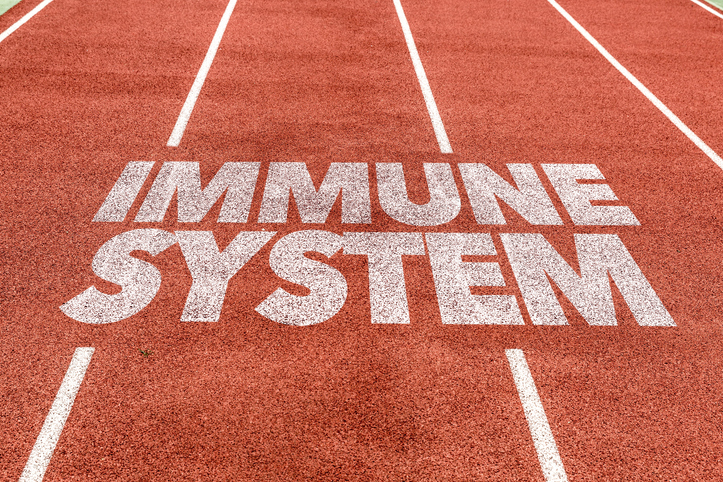A Good Defense is A Boomer's Best Offense for Fighting Viruses

I must admit that when I first heard “older people” were at much greater risk if infected with the novel coronavirus, (also known as COVID-19), my first thought was “well, they are not talking about me, I am only 60 and 60 is the new 40.”
A few days later, I joined the ranks of boomers around the country receiving calls from their kids telling them to “stay home, not fly and avoid visitors” because this virus carries greater risk “for the elderly and Mom, you’re elderly.” Now, in case you’re wondering, Miriam Webster defines elderly as “rather old” and especially “being past middle age.” Believe me, that got my attention and reminded me of the importance of being proactive about doing what I could do to protect myself against this new health threat. I hope it has gotten your attention as well.
It made me think about why boomers, who are arguably more health conscious than previous generations, would be at much greater risk for complications from this virus (or other viruses for that matter) then our younger counterparts independent of any chronic conditions, such as diabetes, cardiovascular or respiratory diseases.
What is it about being a boomer that in-and-of-itself would increase our risk for viruses?

As we get older, our immune system may be less efficient
The answer is that as we get older, our immune system – which is responsible for fighting off viruses like the coronavirus – does not usually respond as quickly or as forcefully to pathogens as it used to when we were younger. This is one of those inescapable facts of aging, much like getting wrinkles or going gray.
The good news, however, is that there is a lot that we can do to help our immune systems be their strongest so that they can better protect us from these foreign invaders. This is especially important when it comes to the COVID-19 coronavirus since there currently is no vaccine or treatment for it. Symptoms have to be managed in a medical setting as best as possible. So, it basically comes down to the strength of our immune systems to protect us. In other words, and to paraphrase a football phrase, our best defense when it comes to the coronavirus is a good offense and our immune system is that offense.
So what can we do to help our immune system?
Try and not stress too much about this pandemic since stress generally leads to a weakened immune system.
What can we do about stress, especially now? In my case, I have decided to limit my watching or reading the news to twice a day. I am quickly realizing that it is good to be informed. Information gives me the tools to better protect my health. But I have to also avoid taking in so much information that I end up worrying myself (literally). Also, try meditating, taking free online yoga classes, having a video call with your grandkids and friends, or reading that book you’ve always wanted to read. I also would suggest going out for a walk, which in addition to giving you exercise (which boosts the immune system), will also let you get some sunlight (which helps your body produce vitamin D, an immune booster which is especially important for we boomers). And don’t forget to talk about your concerns with friends, family or a spiritual advisor. Sharing your worries often makes them less stressful.
If you smoke, quit.
I can’t be more emphatic about this. The first indication that smoking makes it harder for your immune system to fight off the new coronavirus comes from the preliminary morbidity and mortality data from China, which is where the initial outbreak occurred. The analysis showed that among Chinese patients diagnosed with COVID-19-related pneumonia, the odds of disease progression (including death) were 14 times higher among people with a history of smoking compared to those who did not smoke. That should be the reason you’ve been looking or waiting for to quit.
Stay hydrated.
In addition to its other health benefits, water is an extremely important nutrient for immune function. Water helps carry oxygen to cells in your body, and oxygenated cells are necessary for systems in the body, like the immune system, to function properly. Water also helps flush toxins out of the body that can cause infections.
Be aware of the nutrients that will bolster your immune system. Two that are especially important for we boomers are vitamin D, as I mentioned above, and zinc. Vitamin D, also known as the “sunshine vitamin,” may play a role in protecting us from viruses.
A recent study suggested that vitamin D supplements may provide protection against acute respiratory infections since it appears to have powerful immune-boosting properties. And looking specifically at boomers, in another study of “older” patients, those taking higher doses of vitamin D had about 40 percent fewer respiratory infections over the course of a year than those taking standard doses. The best way to get vitamin D is to take a walk in the sun. You can also get it in vitamin D-fortified foods or through supplementation.
Another important nutrient for boomers to help keep our immune systems strong is zinc, which is an essential trace mineral with many health benefits. Zinc levels tend to be low in older people. Not having enough of zinc has been reported to negatively impact immunity and increase the risk of getting infectious diseases, which disproportionately impact boomers. For example, low zinc levels is associated with a significantly higher incidence and longer duration of pneumonia (a key complication of coronavirus). An easy way to see if you are getting enough zinc is to visit your local health store, put a tablespoon of zinc (it is usually a liquid) in your mouth and swirl it around. If it tastes metallic, you probably have enough zinc. If you taste nothing, then you are probably zinc deficient and need to supplement. You can usually get zinc from such foods as oysters, poultry, red meat, chia seeds, almonds, broccoli and oatmeal. However, to the extent that we may have difficulty absorbing zinc from foods, supplementation may be more effective.
Talk with your doctor about whether medications you take may impact your immune system.
Many boomers may take one or more medications to treat chronic conditions such as hypertension. Some medications may weaken the immune system. It’s therefore important to talk to your doctor and inquire what you can and should be doing to better protect yourself from viruses and other infections.
Make sure you’re getting enough sleep.
Healthcare professionals recommend a minimum of between seven and eight hours a night.
Get out in the fresh air and get moving.
Cardiovascular exercise will increase the oxygen delivery to your cells and improve your immune system. Even just 30 minutes of brisk walking may improve your immune system compared to otherwise sedentary time.
It’s also important to maintain a healthy weight – getting in your daily walk and eating a well-balanced, primarily plant-based diet will help a lot with this.
Remember that your immune system is your first line of defense – and with viruses, including the coronavirus, it is your only line of defense – so be sure to keep it as strong as possible to better protect your health.
How concerned are you about the new coronavirus? What are you doing to protect yourself? Are you taking any specific steps to boost your immune system? What advice would you give your fellow boomers who may worried about this new health risk? Please join the conversation.
About the Author
Joy Stephenson-Laws is the founder of Proactive Health Labs (www.phlabs.org), a national non-profit health information company that provides education and tools needed to achieve optimal health. Her most recent book is Minerals - The Forgotten Nutrient: Your Secret Weapon for Getting and Staying Healthy, available through Amazon, iTunes and bookstores.







